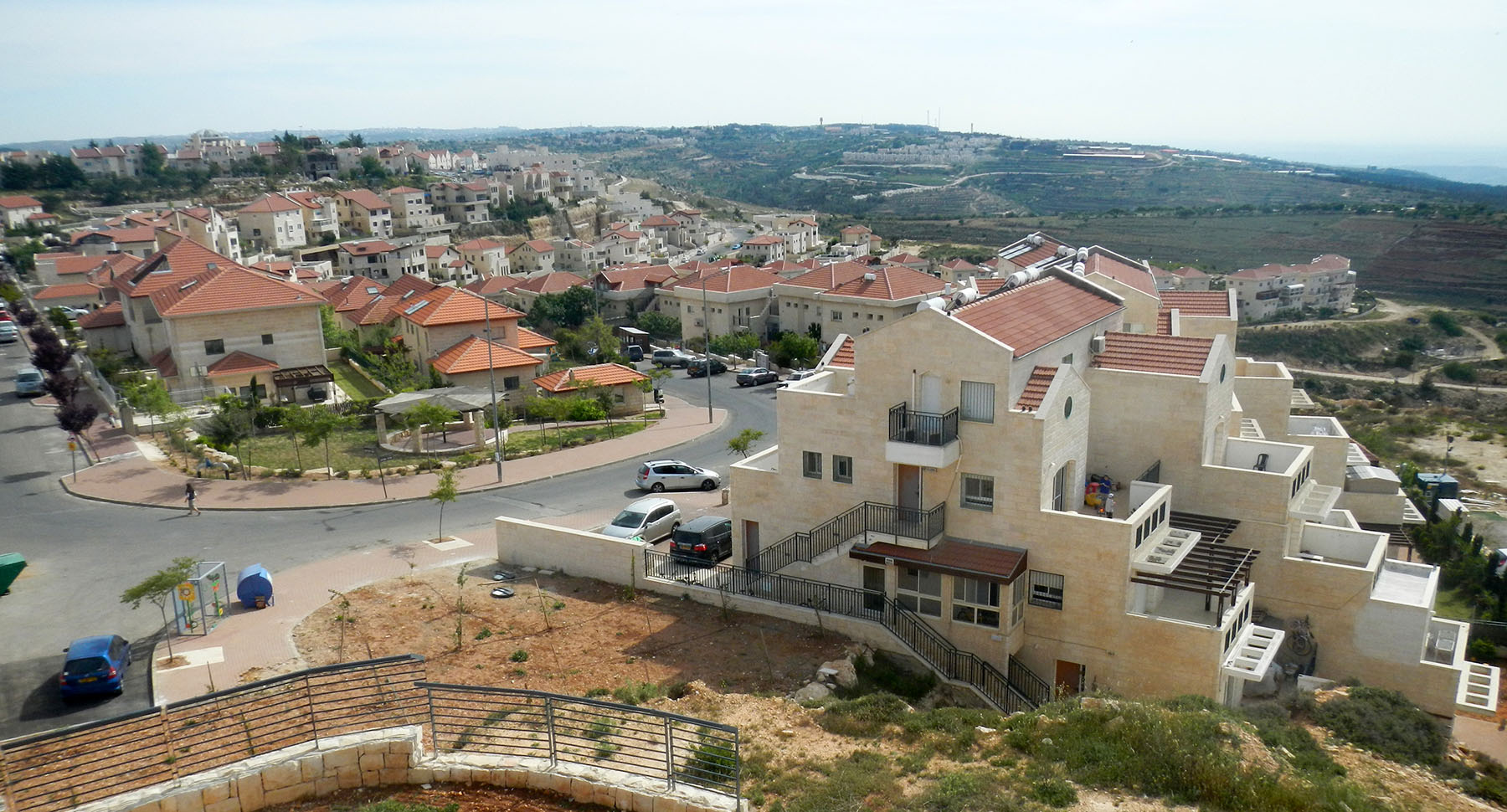 Newe Daniel, a West Bank settlement. Photo by Wilson44691/Wikimedia Commons
Newe Daniel, a West Bank settlement. Photo by Wilson44691/Wikimedia Commons WASHINGTON DC (Israel Policy Forum) — With the U.S. election less than three weeks away and Joe Biden maintaining a steady lead in national and battleground state polls, other countries are scrambling to align their policies with the possibility that President Trump may no longer be in the Oval Office come January 20. While a shift in administrations will impact literally every country on the globe, the implications for specific areas of Israeli policy are unusually significant.
While a Biden administration will undoubtedly be as supportive of Israeli security needs and concerns as previous administrations have been dating back decades, it is impossible to envision a Biden White House adopting the same general policies as the Trump administration with regard to the West Bank. The Israeli government cannot count on American policy remaining supportive of unilateral annexation or declaring that Israeli settlements are inherently not in conflict with international law. The dynamic this is creating is that rather than shift course now in a way designed to start on a positive note with a different administration, the Israeli government is trying to hedge for the possibility that we are in the final months of the Trump administration by cramming in as much as it can under the wire.
While a Biden administration will undoubtedly be as supportive of Israeli security needs and concerns as previous administrations have been dating back decades, it is impossible to envision a Biden White House adopting the same general policies as the Trump administration with regard to the West Bank.
This can be most easily seen in the sudden resurgence of approval for new construction in the West Bank. After not meeting for nearly eight months due to repeated postponements, the Civil Administration High Planning Council – the body charged with approving settlement construction – convened this week in order to approve over 4,400 new housing units, with over 2,600 units receiving final approval after having already been deposited. While this is an unusually high number of approvals, there are two other elements that make this particular set of meetings significant.
The first is that the overwhelming majority of the units approved are east of the security barrier, not only in areas such as Beit El and Nokdim that Prime Minister Netanyahu has recently tried to assert are new settlement blocs, but in more isolated spots deeper in the West Bank such as Yitzhar and Eli. The approvals come in spots that are chosen purposely for their role in disrupting any potential Palestinian contiguity in a future state, and are settlements that would have been evacuated in any previous American or even Israeli peace proposal but that the Trump plan left under Israeli control. The obvious subtext to the specific locations is that this is a last gasp effort to ensure that the Trump plan’s territorial vision outlives the Trump administration by hardening Israel’s presence in some of its more far-flung West Bank locations. The Trump approach of saying that Israel should not have to evacuate any settlements at all, no matter their location or how few people live in them, will only be more difficult to discard if the spots deep inside the West Bank are the ones that are slated to grow in the near future. Reconvening the relevant body after months of an unspoken freeze in order to approve thousands of units precisely in the places that were commonly understood as ones that would eventually be evacuated in any deal before Trump came along is a clear statement that the Israeli government is trying to establish Trumpian facts on the ground as quickly as possible before its hall pass expires.

The second element of note is that this is the first meeting of the High Planning Council, which is under the Defense Ministry’s authority and purview, since Benny Gantz became defense minister, and it demonstrates just how quickly the lure of political power has worked as it generally does. Gantz was never a hardliner on settlements writ large, but he consistently talked about the need to strengthen areas containing many Israelis and few Palestinians – in other words, blocs west of the barrier – and not stumbling into a situation where Israel would end up permanently controlling the lives of millions of Palestinians. Yet here Gantz is, facing an almost inevitable dissolution of the unity government between Likud and Kahol Lavan and new elections before he gets to assume his half of the rotating premiership, and suddenly he is shepherding through a process of approving thousands of units in places that completely undermine his previously stated preferences. It is reminiscent of his pledge last January during the third election campaign to annex the Jordan Valley following Netanyahu’s promise to do the same, reversing his previous formulation of talking about Israeli control in the Jordan Valley and treating it as a security border in a misguided attempt to appeal to right-wing voters who had a plethora of better options. Nobody who desperately wants to see more building in Ma’ale Michmas is going to vote for Kahol Lavan over Yamina or Likud because Gantz happened to be the defense minister when new houses were approved. Yet Gantz continues to flail around, changing his position with every shift in the wind and vainly trying to ensure that he does not go from leading the Knesset’s second largest faction to its seventh or eighth, and undermining his own alleged beliefs at every turn.
New settlement construction is not the only way in which Israel appears to be taking advantage of what may be the waning days of the Trump era. The government – again under the purview of Gantz’s Defense Ministry – is carrying out demolitions of Palestinian structures in Area C at a newly accelerated rate, and particularly focusing on projects that were funded by European countries. This is in line with the narrative on the Israeli right that the Palestinians are engaging in an illegal takeover of Area C, and it appears that the government is demolishing as much unpermitted Palestinian construction as it can before it may cause friction with a new American administration. Israel demolished 270 and 271 Palestinian structures in Area C in 2017 and 2018 respectively, a number that rose to 392 last year. Through the end of September, Israel had already demolished 410 structures in Area C in 2020, but the rate has been steadily increasing as the year has gone on, with 255 in the past four months compared to 155 in total in the first five months of the year. All in all, the picture this paints is of an Israeli government looking to do what it can while it still can.
Netanyahu, Gantz, and many others in the Israeli government have enjoyed the benefits of an American president and his advisers who have given them carte blanche in the West Bank. If you want one of the best signals that they believe this unprecedented period is about to end, watch the supermarket sweep currently unfolding, which may pale in comparison to what the Trump administration will greenlight – if not actively encourage – before it exits stage right should it be voted out of office.
Michael Koplow is Israel Policy Forum’s policy director, based in Washington, DC. To contact Michael, please email him at mkoplow@ipforum.org.





















 More news and opinions than at a Shabbat dinner, right in your inbox.
More news and opinions than at a Shabbat dinner, right in your inbox.